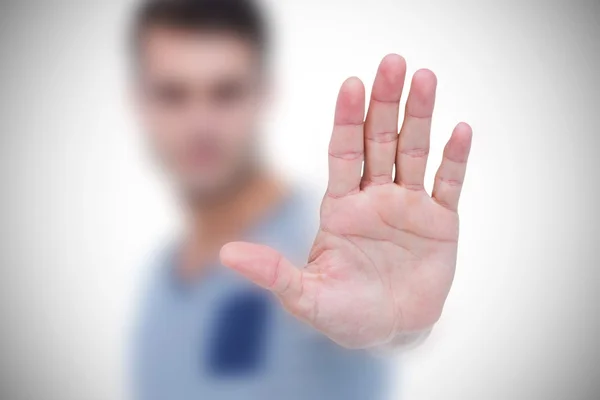Gambling can be an exhilarating experience, offering thrills, excitement, and the possibility of winning. However, when the activity shifts from entertainment to a compulsive behavior, it can wreak havoc on personal lives, relationships, and finances. This guide provides insights into recognizing the signs of problematic gambling and strategies for recovery.
Recognizing the Signs: When Gambling Turns Problematic
Understanding when gambling crosses the line into a problem is crucial for seeking help. Below are some common indicators that gambling is no longer a fun pastime.
Common Signs of Problematic Gambling:
- Preoccupation with Gambling: Constantly thinking about gambling, even when trying to focus on other activities.
- Increased Tolerance: Needing to gamble more money or more often to experience the same level of excitement.
- Chasing Losses: Feeling compelled to continue gambling to win back lost money, leading to deeper financial trouble.
- Neglecting Responsibilities: Letting work, family, and social obligations slide due to gambling activities.
- Withdrawal Symptoms: Feeling restless, irritable, or anxious when attempting to cut back or stop gambling.
- Lying About Gambling: Concealing gambling habits from friends, family, or employers, which can lead to a loss of trust.
- Financial Problems: Relying on loans, credit cards, or borrowed money to support gambling habits.
Comparative Table: Healthy vs. Problematic Gambling
| Aspect | Healthy Gambling | Problematic Gambling |
|---|---|---|
| Purpose | Entertainment and fun | Escape from problems or stress |
| Frequency | Occasional, social, or planned events | Frequent and compulsive |
| Financial Impact | Within means; no significant losses | Significant debts and financial strain |
| Behavior | Enjoyable; no associated guilt | Guilt, shame, or regret |
| Social Interactions | Enjoying time with friends | Isolation from friends and family |
| Emotional State | Positive, relaxed | Anxiety, stress, or depression |
Understanding these differences can help individuals assess their relationship with gambling. If you identify more with the "Problematic Gambling" column, it may be time to seek help.
Strategies for Recovery: Reclaiming Joy Beyond Gambling
Recovery from problematic gambling is entirely possible with dedicated effort and support. Here are strategies that can help individuals reclaim their lives and find joy outside gambling.
1. Acknowledge the Problem
The first step toward recovery is admitting that gambling has become a problem. This acknowledgment can be difficult but is essential for initiating change.
2. Seek Support
Engaging with support networks can provide the necessary encouragement for recovery. Consider the following options:
- Counseling: Professional counselors specializing in gambling addiction can offer personalized treatment.
- Support Groups: Organizations like Gamblers Anonymous provide community support and shared experiences.
- Family and Friends: Openly discuss your struggles with trusted individuals who can provide emotional support.
3. Establish Boundaries
Setting clear boundaries can help mitigate the risk of relapse. Consider these actions:
- Limit Time and Money: Set strict limits on how much time and money you can spend on gambling.
- Self-Exclusion: Many casinos and online platforms allow individuals to self-exclude from gambling activities.
4. Find Alternative Activities
Redirecting your energy and focus to other fulfilling activities can significantly alleviate the urge to gamble. Consider:
- Hobbies: Explore new interests like painting, cooking, or sports.
- Physical Activity: Engage in regular exercise to boost mood and well-being.
- Volunteering: Helping others can bring a sense of purpose and fulfillment.
5. Educate Yourself
Understanding the psychology behind gambling addiction can empower you to make informed decisions. Read books, attend workshops, or consume online resources dedicated to gambling addiction.
6. Consider Professional Help
In more severe cases, professional treatment may be necessary. Options include:
- Cognitive Behavioral Therapy (CBT): A structured program aimed at changing harmful thought patterns related to gambling.
- Medication: In certain situations, medications may be prescribed to alleviate underlying issues like anxiety or depression.
7. Maintain a Healthy Lifestyle
Adopting a holistic approach to recovery involves taking care of your physical and mental health. This includes:
- Balanced Diet: Nourishing your body with healthy foods can improve your physical and mental state.
- Mindfulness Practices: Techniques like meditation and yoga can reduce stress and anxiety.
In conclusion, gambling can be a pleasurable activity for many, but when it shifts to compulsive behavior, it can lead to dire consequences. Recognizing the signs of problematic gambling is the first step toward recovery. By implementing the strategies outlined in this guide, individuals can reclaim their joy and find fulfillment beyond gambling. Recovery is a journey, and with the right support and determination, it is entirely achievable.
Questions 5-7
- What are the first steps I should take if I suspect I have a gambling problem?
- Start by acknowledging your feelings and behaviors surrounding gambling. Reflect on your gambling habits and how they impact your life. Seek to understand your relationship with gambling and consider reaching out for professional help or support groups.
- Are there self-exclusion programs available?
- Yes, many gambling establishments offer self-exclusion programs that allow individuals to voluntarily exclude themselves from gambling venues and online platforms. Research local options to find a program that suits your needs.
- Can recovery from gambling addiction truly happen?
- Absolutely. Many individuals recover from gambling addiction through structured support, therapy, and a commitment to bettering their lives. Recovery is a personal journey but is achievable for those who seek help and make necessary lifestyle changes.
